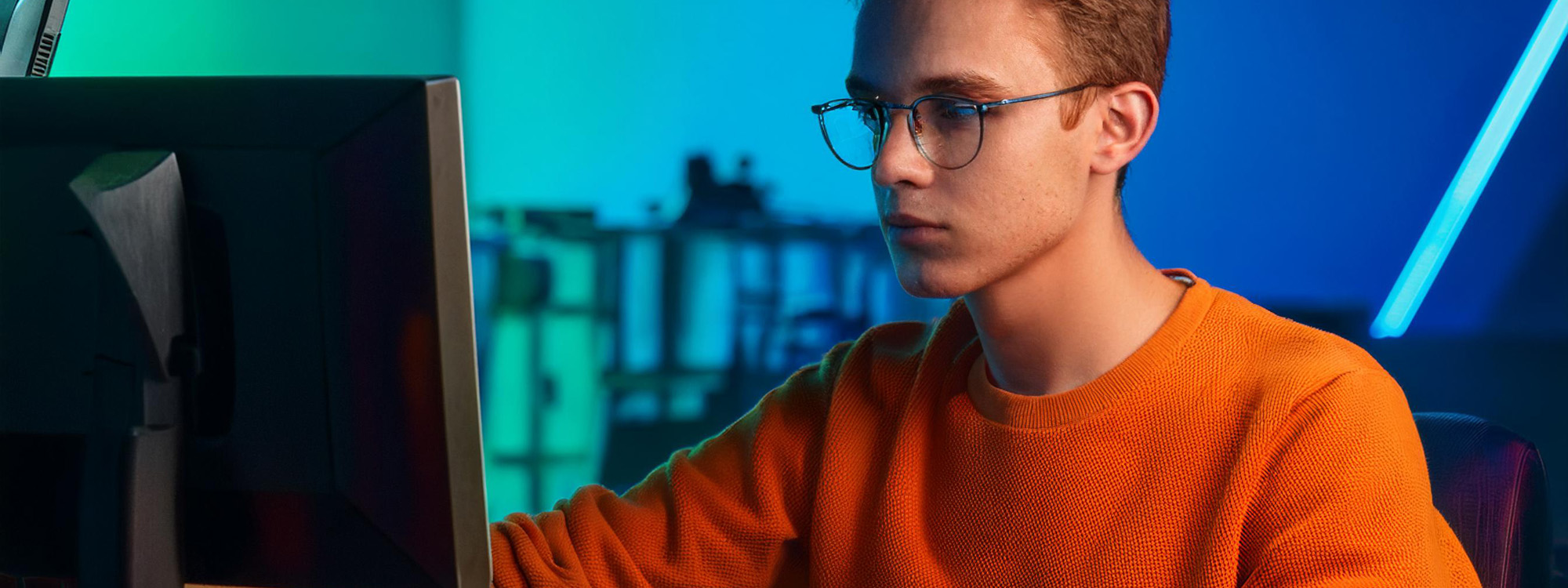


3 of 6: Does viewing CP encourage child abuse? What about artificial CP, like images, dolls, stories? This item is part of a special series of posts. A six-part series on child pornography and artificial child pornography, aka drawings, stories, etc. This series covers:
About a year ago, I was pretty shaken by a comment in a Quora thread. The person I was talking to cited a New York Times article about the psychology of pedophiles, where they concluded that virtually everyone who views child pornography also abuses children. In fact, right from the article: "a pair of psychologists at the Federal Bureau of Prisons reported that 85 percent of convicted online offenders acknowledged in therapy that they had raped or otherwise sexually abused children."
At a professional workshop, Hernandez (one of the study’s co-authors) explained that he created a climate of "systematic pressure," so that inmates would "put all the cards on the table," abandoning a "life style of manipulation." Patients were required to compose lists of people they had sexually harmed, which they updated every few months. At daily community meetings, when offenders insisted they had nothing left to disclose, other prisoners accused them of being in denial or "resistant to change." If they failed to accept responsibility, they were expelled from the program. In a weird way, I breathed such a huge sigh of relief when I read that. Now it made sense. A bunch of guys, all in prison on long sentences, under pressure, both social pressure and pressure with outside consequences, to admit their "crimes." They were alone, and locked up, and that was how they could get treatment. How they might have a hope at release. It is, unfortunately, not an unfamiliar story. It is also not a valid study. Meanwhile, other studies consistently find a very low level of recidivism or hands-on offenses for viewers of child pornography. Is it possible that FBP study is right? I suppose so, but all my experiences, plus a lot of researchers, say it's probably wrong. (And remember, these are researchers who have absolutely no professional reason to stand up for pedophiles.) Honestly, it still freaks me out that the study is out there, and that people believe it, but at least I understand what happened. So, these days, everyone has their own reason to hate on the New York Times. Mine, their bad use of a scientific study about pedophilia, might be... a bit unique. (That plus their conflating of pedophiles and child abusers.) But regardless, whether it's in the Times or not, it's not good research.1 what if you ask pedophiles? If the FBP study were even remotely valid, it'd be a pretty severe diagnosis. If so many of the people who view child pornography go on to molest kids, you'd have to assume that even artificial child pornography would have the same effect. But it sounds like the true numbers are much, much lower, so that doesn't really tell us so much. I know that this might not be seen as the most trustworthy source, but I do want to open with asking pedophiles about the effect of viewing artificial child pornography on their offending. After all, there are a lot of us with that lived experience. (Of course, take it with a grain of salt—even if we were all that introspective, representative samples of pedophiles are still basically impossible.) For example, there was a poll on the site Virtuous Pedophiles, which provides a forum for those with pedophilic attraction to talk to each other. Of 40 respondents, five said that viewing artificial child pornography increases their likelihood of offending, 21 said it has no effect, and 14 said it decreases their likelihood of offending. That matches both my intuition and what I said last time: it depends on the person, but artificial child pornography probably helps on average. That's not a very big sample, though. A few years ago, Professor Michael Bailey at Northwestern University did a study of pedophiles from a number of different sites online, including Virtuous Pedophiles but also a number of other sites. (Published articles from this study are available here) and what happens when national or state policies change? If you're not satisfied just by asking pedophiles (and I'm not!), then we should try to get some real-world data about the effect of pornography on sex-related crimes. Even if it's pornography in general (rather than images about kids), it can still tell us something about how humans react. Here's a pretty neat study you can do: if the availability of pornography changes, either because laws change or because, say, the internet becomes available, you can study how that changes reports of sexual violence. This could validate "seeing pornography makes people seek out harder stuff until they rape someone," or it could validate "pornography provides an important release that prevents people from acting out on their urges." In fact, there was a big media flurry about ten years ago with various studies showing that availability of the internet correlated with decreased rates of rape (of adults); the theory was that porn provided an outlet. That wasn't even the first such study: porn access also increased before the internet (VCRs!) and similar things happened there. For example, here's a paragraph from a Scientific American story: "Rates of rapes and sexual assault in the U.S. are at their lowest levels since the 1960s," says Christopher J. Ferguson, a professor of psychology and criminal justice at Texas A&M International University. The same goes for other countries: as access to pornography grew in once restrictive Japan, China and Denmark in the past 40 years, rape statistics plummeted. Within the U.S., the states with the least Internet access between 1980 and 2000—and therefore the least access to Internet pornography—experienced a 53 percent increase in rape incidence, whereas the states with the most access experienced a 27 percent drop in the number of reported rapes, according to a paper published in 2006 by Anthony D’Amato, a law professor at Northwestern University. (And yes, that article is titled "The Sunny Side of Smut," because journalists.) That's pretty promising, but let's also be clear: this is a hard study to get right. There are lots of other things that might correlate with internet access, such as poverty, urbanization, and more. In fact, crime and poverty are closely linked. In the US, with just 50 states, I'd be surprised if they could effectively control for those differences. (As a further wrinkle, why would rapes have risen in places without internet access, rather than staying flat? Something else was going on.) In other words, this is an interesting study, but hardly conclusive. That's going to be a problem for everything in this section: we've got signals, but nothing conclusive.2 You might argue that pedophilia and adult rape are different, and you're right; the mechanisms might be totally different. But understanding porn's effect matters, and if you'll indulge me for a moment, we'll even see child pornography play a role here. In a 1991 article from the International Journal of Law and Psychiatry there's a look at pre-internet porn accessibility from 1964-1984. In all of the US, Denmark, Sweden, and West Germany, accessibility of pornography went up significantly, but violent sex crimes did not go up any faster than non-sexual violent offenses or non-violent sexual offenses. In the Czech Republic, Denmark, and Japan, studies have shown that when pornography was legalized, incidence of sex crimes decreased. However, those studies showed something else interesting. In each of those countries, there was a period where actual, real child pornography was legal(!), and rates of child sexual abuse also went down. (See here for the 1973 paper about Denmark.) I'm definitely not arguing that child porn should be legalized, because I don't believe it's moral. But that is a strong suggestion that perhaps artificial child pornography could be a good and similar substitute. It's another data point for the "safe outlet" theory. Unfortunately, there are limits to these studies. For one thing, if you look at a whole country as a monolith, it's hard to have any meaningful experiment; there are all kinds of national confounding factors that could have caused the changes. For example, maybe attitudes towards sex and what was reportable as abusive changed over time; maybe access correlated to income; etc. It's an intrinsic limitation of studies like this. One attempt to fix this was a 2007 state-by-state examination of the US which looked at how internet access compared to rates of sex crimes. Rates of sex crimes dropped as internet access increased, but it's hard to know if internet access had some effect on the rate of reporting of rapes, or if it caused a decrease unrelated to pornography, or if there's some other relationship and internet access had nothing to do with it. There's some nuanced commentary at Freakonomics for example. Now, everything I've said until now was stuff I basically knew before writing this blog post. However, I wanted to make sure I did my research before writing it, and I did come across two more recent studies that give an opposite result, which left me a bit disheartened because it muddies the story. Most notable is a study from India although it doesn't look as promising, especially because the increase in child sexual abuse reports they notice predates the increase in internet access!) Anyway, the Norway result weighs in against the "pornography as safe outlet" claim, and it's a good study. One thing none of these studies have looked at is underlying psychology; they all just look at correlations in the real world. Predating the Norway result, I think it's worth pointing to a 2009 paper in the journal Aggression and Violent Behavior which, in addition to looking at access to pornography, also reviews psychological studies. (Sadly, those are still inconclusive.) I think their conclusion is helpful: Victimization rates for rape in the United States demonstrate an inverse relationship between pornography consumption and rape rates. Data from other nations have suggested similar relationships. Although these data cannot be used to determine that pornography has a cathartic effect on rape behavior, combined with the weak evidence in support of negative causal hypotheses from the scientific literature, it is concluded that it is time to discard the hypothesis that pornography contributes to increased sexual assault behavior. I'll be honest. When I first started this research, I hadn't seen the Norway article, and so I felt like the preponderance of signals indicated that access to a safe outlet is likely to decrease child sex abuse. I thought this would be a pretty straightforward section of the blog post, but instead I have to report mixed signals. I don't want to overplay it; the article from Norway is well done, but it's one among many. Nonetheless, you also have to admit there's probably some publication bias overall: a paper saying "yo, access to porn makes rape incidence go down!" is much more likely to get published because it's so counter-intuitive. I also know my personal biases. I want to be able to look at artificial cp because it gives me a personal release, and so I want the data to say we should make sure it's legal. But just for the record—if you're rooting for the Norway paper, keep in mind that it would strongly argue we should ban _all_ pornography. After all, it found that all sex crimes increased with internet access. And don't forget, most articles come to a different conclusion. Ok, so, that was a bunch of data. What do I think right now? Well:
I'm not enough of an expert to say something more definitive, but that's how I see it point. About the author: After realizing my attraction at the age of 13, I began the journey of figuring out how to live a good life. When I eventually landed happily, I decided to share that journey with others. At first, I primarily wrote answers on Quora, which were viewed over a million times, liked thousands of times and led to numerous positive comments and discussions. I also started a blog, which was fortunate as a likely reporting campaign resulted in my Quora account being deleted, so much of my work remains online there. In addition to his writing (here and elsewhere), I enjoy board games, hiking, and spending time with friends. I have been part of the community for over a decade, seeking to do my part to make the world a better place.
| ||
| | ||
| |
 |  |  | ||
| | ||||
 we have to protect children, even the ones you hate we have to protect children, even the ones you hate |
| |
 thread: welcome, pandemic maps! thread: welcome, pandemic maps! |
| |
 a moment in the sun a moment in the sun |
| |